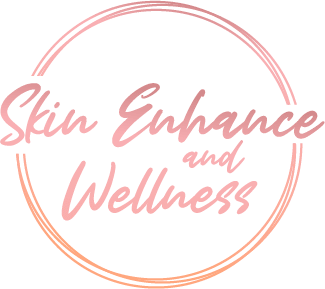There are many reasons why doctors decide to specialise in aesthetics. For me, it was a personal journey. Here is my journey into aesthetics.
Childhood and teenage years
I was born in the beautiful island of Sri Lanka and spent my childhood in Sri Lanka. My early teenage years were in West Africa, where I had excessive exposure to the sun unaware of the damage to my skin. I came to the UK at the age of 16 which was in the early 90s when there was no sun-awareness.
Did you know that 80% of skin damage from sun exposure occurs before the age of 18? However, the after-effects can take up to 20 years to show on your skin to the naked eye.
Common myth: “If you have dark skin you don’t need to apply sunscreen” Incorrect.
Even after becoming a Doctor I thought I would not get skin damage due to my protective skin colour and skin type, so I never protected my skin with any sunscreen. I enjoyed sun worshipping on holidays just like many others.
What are the early markers of sun damage on South Asian skin?
I developed brown spots or freckles over my nose and cheek area which became apparent in my late thirties. This affected my self-confidence and I felt I had to wear foundation makeup every time I left the house. I was not comfortable even for my close family to see me without makeup.
How did I manage my pigmentation?
About 18 months ago I was privileged to be introduced to the World-Famous Medical Skincare Brand, Obagi Medical, by a colleague. I was prescribed the Obagi Nu-Derm system and had a true skin transformation! I had to cope with the social downtime while using the products and after 6-8weeks I found my skin had improved enormously. This gave me the confidence to leave my house without any foundation makeup.
Even small improvements in your appearance can have a huge impact on your self-confidence.
Work colleagues started commenting on how good my skin looked and that boosted my morale even more. I was fascinated with Medical Grade Skincare and keen to learn how and why they are so effective. This was not covered in my mainstream dermatology training. My journey into Aesthetics had already begun!
I can empathise with anyone with skin concerns
I am so pleased that my journey was the right way as I experienced it from a Patient’s perspective rather than a Doctor’s perspective. This enables me to empathise fully with anyone with skin problems affecting their self-confidence.
How is my aesthetics prescribing different from NHS?
Working in the NHS there are times when you have to tell patients there isn’t anything available to complement their skin condition treatment which can often leave their skin dry, irritated or sensitive. Often for some conditions, the choice of treatment available was restricted either from the absence of suitable options or restrictions to services. This prompted my research of other reputable Medical skincare brands that have a clinical evidence base and use medical and prescription grade ingredients.
What skincare brands do I recommend and why?
I have trained in and prescribe well-known Cosmeceutical brands like Obagi Medical, ZO SkinHealth, AlumierMD and Neostrata. I have chosen these brands among many due to the science behind them. The clinical evidence of their ingredients and the technology involved in making them target specific skin concerns is very impressive. Moreover, they have to be prescribed by professionals trained in the specific brands and not available to pick up on the shelves of a store or sold by a salesperson at a store.
What is the difference between Cosmetic Skincare and Medical Grade Skincare?
The cosmetic products from department stores can only change the appearance of the uppermost surface of your skin (dead skin layer) as these ingredients do not penetrate the skin to the deeper layers. Cosmetics can be advertised as having certain key ingredients even if only a dusting of it is present in a product. They do not have to have the correct quantity to make a significant change to your skin. People often feel that if they are paying a premium price for a product it must be good not realising that the real cost is due to heavy advertising and celebrity endorsements.
Medical grade skincare, on the other hand, is far more superior in that they can penetrate the skin to the deeper active layers to change the structure and function at a cellular level. The key ingredients are at a higher percentage so are strong enough to make long-term improvements to the skin. The technology required to create these products is reflected in the cost but only small dosages are required to make significant changes. Some of the products can only be prescribed by a Doctor and due to their prescription status cannot be legally advertised like cosmetics. This is why these brands are not as well known as the cosmetics to the General public including Doctors who do not practice Aesthetic Medicine.
Why is Skin Care so essential in Aesthetics?
Complimenting Medical Skincare treatments with other modalities such as Injectable treatments, Medical Skin Peels, Collagen Induction Therapy or micro-needling, Mesotherapy and Biorevitalisation has a synergistic effect on treatment outcomes. You are more likely to need less invasive treatments as skin quality improves and your own collagen builds up. My role is to empower men and women to make the right decision for themselves in choosing their skincare as no one should be wasting money on things that don’t work.
Why would you need a consultation?
Everyone is unique, and it is only with the wealth of knowledge of the ingredients that I am able to treat each individual with a variety of skin complaints by customising their treatment to their specific needs.
My training in Aesthetics
As I would never have felt comfortable injecting people’s faces after a ‘one-day’ course I started my Masters (Level 7) qualification in injectables as all my NHS training involved in-depth training. Level 7 involves observing experienced Doctors injecting clients, being mentored on a one to one basis and completing theoretical and practical exams. This has given me much more confidence in non-surgical cosmetic treatments and I practice within my limits and competence which is something my NHS training has taught me. The commitment was only possible once my 3 children have become more independent and settled into their schools.
The challenges of being a part-time GP, Cosmetic Doctor and Full-time Mum have its own implications but for now, I am enjoying every minute of it and my learning journey continues…


Recent Comments